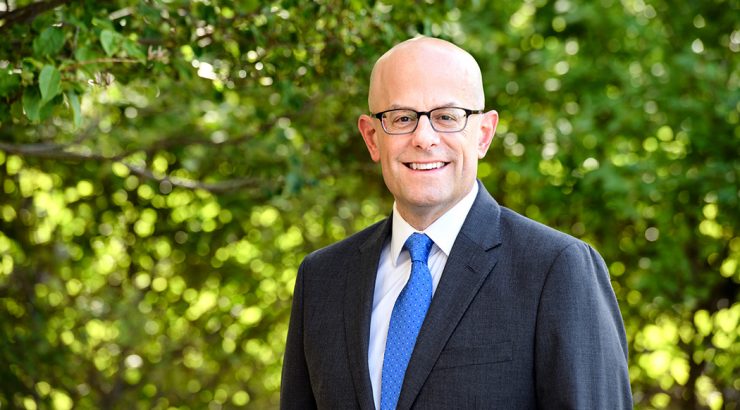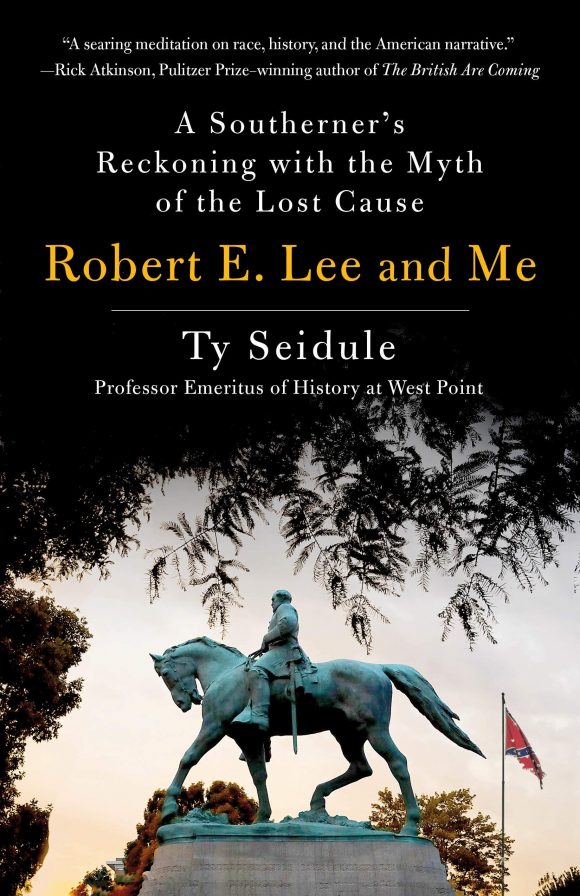
Robert E. Lee and Me: A Conversation with Ty Seidule Engaging the World: Leading the Conversation on the Significance of Race
April 28, 2021
 “Every part of my background led me to the one true ideology, a belief in [Confederate General Robert E.] Lee as the greatest of all Americans,” southern-born and raised Ty Seidule noted during a recent “Engaging the World: Leading the Conversation on the Significance of Race” event. How Seidule came to instead believe that Lee committed treason to preserve slavery was the focus of the conversation on his recently published book, Robert E. Lee and Me: A Southerner’s Reckoning with the Myth of the Lost Cause, with Dean Jennifer Keene and Associate Director of Student Community Support and Development Justin Riley.
“Every part of my background led me to the one true ideology, a belief in [Confederate General Robert E.] Lee as the greatest of all Americans,” southern-born and raised Ty Seidule noted during a recent “Engaging the World: Leading the Conversation on the Significance of Race” event. How Seidule came to instead believe that Lee committed treason to preserve slavery was the focus of the conversation on his recently published book, Robert E. Lee and Me: A Southerner’s Reckoning with the Myth of the Lost Cause, with Dean Jennifer Keene and Associate Director of Student Community Support and Development Justin Riley.
Seidule is a retired United States Army brigadier general, the former head of the history department at the United States Military Academy, the first professor emeritus of history at West Point, and the inaugural Joshua Chamberlain Fellow at Hamilton College. He also has become a social media sensation with his 2015 five-minute video lecture titled, “Was the Civil War About Slavery?” amassing over 30 million views. Dean Keene clarified “Spoiler alert, the answer is yes!”, while introducing Seidule to the audience.
Seidule highlighted that “the only way to prevent a racist future is to first understand and acknowledge our racist past. If we want to know where to go, we’ve got to know where we’ve been and that underlying foundation of history is what I think good citizenship is…we got to understand our past if we are going to make that better society.”
As a self-proclaimed “story-telling historian,”Seidule discussed his recent journey of deconstructing the “Lost Cause Myth” that permeated his childhood and young adulthood. Adherents to the Lost Cause assert that the South fought for states rights, slavery was a benign institution, and the North only won because of greater resources. As Seidule revisited the places where he had lived as a child, been educated, and served in the army, he realized how Lost Cause ideology was everywhere from school and military base names to statues. Less visible to him at the time was the racial discrimination and violence dedicated to preserving white supremacy.
One particular experience as Chair of West Point’s memorialising committee inspired the book. A decision needed to be made on whether or not to include the names of the Confederate soldiers in a memorial commemorating all West Point graduates “who had given their last full measure of devotion to the country.” Seidule argued against inclusion because these men had “fought to destroy their own country.” After failing to convince the majority of the committee, he pondered where he might have gone wrong. His astute wife pointed out that he was hiding his background. By telling his story, he found that the “only way to convince people as a public historian is to put [himself] at the center of the story.”
Along with telling one’s own story, Seidule stressed that by sharing the history and facts surrounding white supremacy and systematic racism, one can begin to challenge it. Seidule stated “Racism is the virus in the American dirt, it’s our eternal pandemic and it requires all of us, particularly people like me to work hard against it.” When a student asked about the best methods to broach this subject with family members who still buy into the “Lost Cause” ideology, Seidule acknowledged his own privilege as a white retired Army officer who came from the South and suggested using his own progress as an example. He also emphasized the need to tell the truth and challenge long held notions with uncomfortable and hard conversations.
“Telling the truth is a ruthless act,” he noted.
Seidule is currently one of four members of the U.S. Department of Defense Confederate Base Naming Commission, a group charged with renaming the military installations still named after Confederates.
Would you like to hear more about this discussion? Listen to the podcast or watch the Zoom recording here!

